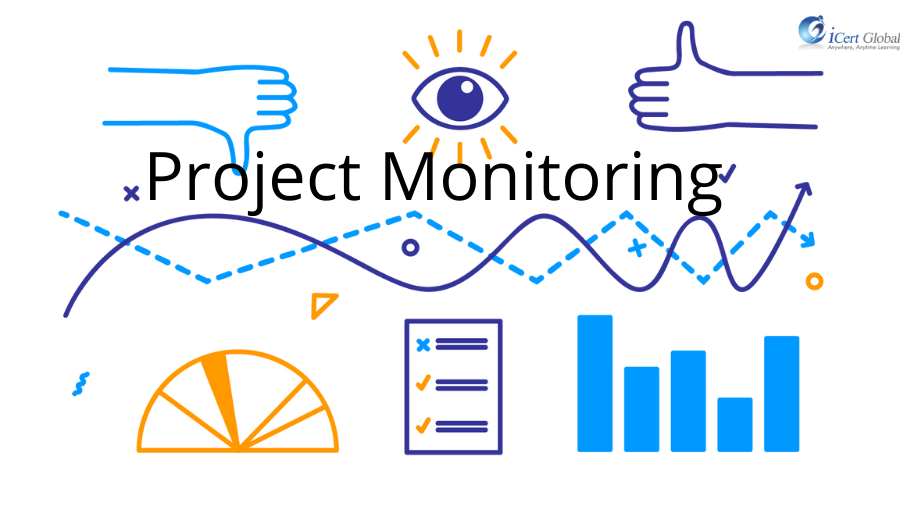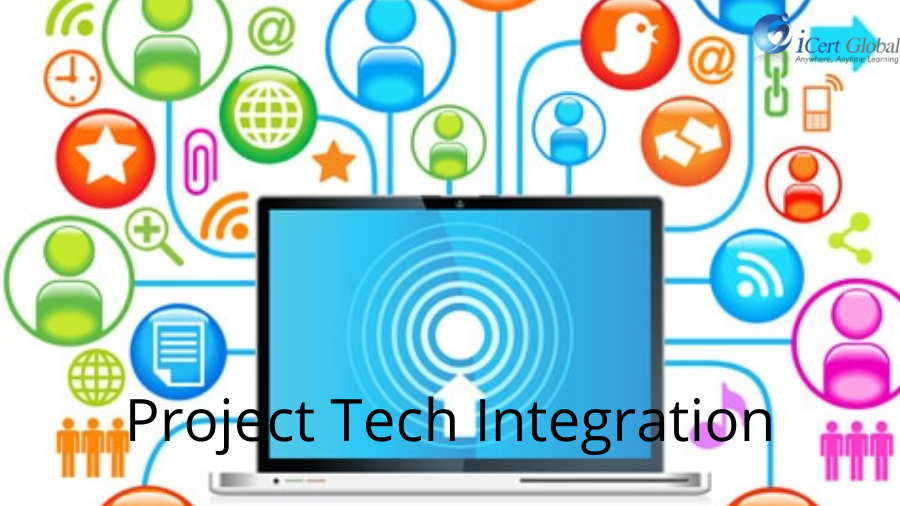
Top 10 Roles of Project Managers
Let's take you back to the days when we first heard the word 'Projects' during tertiary education and later became an imprint in our lives. You may remember when the professors asked us to do math or science projects or when we were assigned specific groups for the projects. During the initial time, some of us might have thought about why it's necessary for our education.
Oh… and did you know that NASA's InSight mission - the study of Mars' interior, is also known as a project? I bet you didn't. Now it's confusing, isn't it because NASA's mission is also called project and our so does our school-college assignments. So, tell me, how exactly do we define the term project?
Though the term contains several variations, a project is basically a task with a deadline, target, budget, and time to be met before delivery. If a teacher assigns us to work with a goal and wants it to be completed by a specific date, that is a project. The same goes for companies, but the only difference is its project has a more significant weightage.
However, the efficient management of a project is not a cakewalk. In fact, it's several not easy tasks throughout the initiation, planning, performing, management, and project completion. These tasks don't get done by a single person but need a team. This is where project managers and team steps in. When we see the project management phases, several groups and people are involved - helping in designing, developing, and delivering the objectives set out in the project.
Unlike our previous blogs that explain crucial concepts, we shall be highlighting main topics - Who is a project manager, what is a project team, and 10 critical responsibilities of them in an organization?
For people new on the topic - project management shall refer to our previous articles published on our website: https://www.icertglobal.com/
A few articles we think are significant for the newcomers to better understand are listed below; kindly go through them. The rest familiar with the topic shall skip this part and move on to central points.
A Step-by-step Beginner's Guide to Project Management
Why Triple Constraint Theory in Project Management?
Requirements for an Effective Program Management Office
Role of Business Analyst (BA) in Project Management
Who is a Project Manager?
.png)
A project manager is an individual that is accountable for leading the project, i.e., from initial to final project delivery phase. Being spearheads, they define project objectives, align internal & external teams, create project timelines, and monitor key performance indicators. Project managers ensure that the project is completed within the client-specified deadline and ready to be delivered without fallacies.
To make you understand better, these individuals provide the project vision to their team and keep their focus firmly fixed on the same. In other words, we can say these individuals are either ultimately praised for the victory or discredited for its failure. Either way, they are held accountable for the project's fate.
Let's list some of the project management skills you as a project manager may obtain:
- Quality Control
- Vendor Management
- Budget Forecasting and Management
- Business Strategy Development
- Progress Reporting
- Gantt Chart and Timeline Development
- Define Work Objective etc.
What is a Project Team?

A project team is a group of personnel coming together to achieve specific business goals or objectives. Depending on the projects, these groups can either be created temporarily or for a long-run purpose. Remember that people in the project-oriented groups don't necessarily be from the same functional areas.
To manage a project efficiently and effectively, an organization can group current employees or recruit new people. The person who acts as a core to the project management team is the project manager. Along with the team, this manager contributes to the project's success.
You may like: 10 Tips You Must Know to Crack the CAPM Exam in First Try
Enough with the topic lag... and move on to what's required: the roles and responsibilities of project managers.
10 Roles and Responsibilities of Project Managers
From the beginning of the article, we have been stressing the words project, project managers and project management team. As said, the central role of a project manager is to achieve specific goals within a specified timeline.
But we haven’t started with how these tasks are carried out or what they do for an organization. So, without a further delay, let’s get started.
The roles and responsibilities of project managers are:
- Planning
- Organizing
- Leading
- Communication
- Monitoring
- Risk Management
- Tech Integration
- Project Execution
- Time Management
- Documentation
1. Planning

It is the most crucial step in project management to prevent failure. A good project manager knows creating a project plan beforehand is the best way to navigate the risks and contingencies of the project execution stage.
In planning, they define the project's scope and accordingly create a plan and schedule. The manager develops efficient methods and policies for better project delivery within a specified time and budget. Moreover, this phase involves determining resource availability such as financial, human etc., considering the time factor for project completion.
If you think planning only happens at the beginning of a project and is later forgotten, then that's a big NO. Planning occurs throughout the project course, i.e., from its initial stage to when the project is actually delivered to the client.
One of the topmost skills a project manager must possess during the planning is flexibility to alter the plan according to changing demands of the client.
You may also like: Top 50 PMP Questions with Answers for 2022
2. Organizing
.png)
What will the project manager do next once they have a neat plan with needed requirements for project execution? Organize and implement the plan. But why not directly implement the plan? Well, that’s not POSSIBLE for any project or non-project cases. Let’s say budgeting, drafting an official mail, or a technology algorithm must be organized before implementing them. An improper method used without effective organizing to meet the business target could bring in a ton of obstacles to your company.
The role of project managers in organizing is assigning functions to their team members and setting deadlines to achieve goals. In other words, they are giving structure to the project team by considering the existing system followed by the company. This includes the briefing of methodologies or tools the member can leverage.
3. Leading

Leading or leadership is considered the most essential responsibility a project manager must-have. A broad role can encapsulate all other project roles of the manager. They must take the lead right from the start by coordinating with many people for seamless project progress, regular tracking of project progress and ensuring the team meets the deadlines and follows the policies.
Several things wander inside a project manager's head, like what task to assign to specific team members or should the project be terminated as it exceeded certain resource limits. They must have the potential to make effective decisions.
Moreover, they must have in-depth knowledge regarding the technical issues that may or may not arise within the project. Apart from technical skills, the leading phase must have interpersonal skills, as managers demand excellence from their team and assist them in their personal development.
4. Communication
.png)
The best project manager must be an excellent communicator to inform the team regarding project changes, problems impacting executions, and the expectations for task completion. Hence, communication strategy paves the path towards a successful project.
However, communication isn't restricted to just team members; instead, these managers have to interact with clients, vendors, project sponsors, and other significant shareholders during the project.
It is also vital to conduct regular meetings with the team leaders to better understand where the project stands in terms of requirements, progress, and issues. Without a clear picture of the project, shareholders and teammates can easily misinterpret the significance of deliverables and tasks.
You may also like: 5 Steps to Create a Project Communication Plan
5. Monitoring

Project managers must be constantly on guard and ensure that the project is streamlined and on the right path. This means they have to monitor whether the leveraging of resources is done efficiently and is completed within the turnaround time.
To have a smooth monitoring process, many managers follow a 3-step controlling process - Measure, Evaluate and Correct. Unlike the traditional method of monitoring projects, it can be done much seamlessly through collaboration between the project manager and the team members in the modern world.
To make the monitoring process much more straightforward, project management software can track the task, determine issues through set metrics, and alleviate risks through early issue detection.
You may also like: How to Handle Project Monitoring Process Perfectly
6. Risk Management
.png)
Risk is an inevitable part of a project. Hence, managing risks having a severe effect on the project is a critical role of project managers. These managers create a risk management plan to determine, access and control risk, thus leading to a successful project.
Those familiar with or heard about the PMI's PMBOK Guide have seen that risk management is one of the critical knowledge areas. It indicates that the managers should exhibit competency to become certified professionals.
You may also like: Risk Assessment in Project Management
7. Tech Integration

Over the recent years, the project management sector drastically changed, with more than two-thirds of companies outsourcing project managers in 2019 alone. Several organizations started shifting to innovative technology and AI to streamline, organize and monitor project-based results. However, some critics believe that technology can never replace the human mind.
In this digital revolving world, it is crucial as a project manager to use the existing tech to improve transparency, share & synthesize data, and alert internal and external shareholders to programmatic updates.
Talking about the technology, we know that email integration, file sharing, budget management and time monitoring are the top-most requested and leveraged project management software features.
8. Project Execution

Though a project managing team is required to tackle the bulk of the project life cycle, project managers must involve themselves in producing deliverables. By applying themselves in the project execution, they could better understand the management process's needs and the duration to deliver outcomes.
With these data, you as a manager can allocate resources to the required areas and even adjust them when misplaced. A thing to keep in mind is to ensure the team members are within the budget throughout the execution process.
9. Time Management

Since every project requires a schedule, project managers must ensure that the team members are on the same page. They must be involved in the project execution process and track the deliverable progress that has a margin regarding time management.
Going over a proposed delivery time is a risk that all projects must eradicate. When creating a project plan, implement schedule buffers to alleviate these risks.
Even experienced professionals make mistakes; hence no project plan is perfect. There can be challenges that will impact the schedule. As a project manager, you have to be schedule flexible and alert shareholders regarding the changes.
You may also like: Benefits of Project Time Management
10. Documentation
.png)
Documenting is a critical role of project managers. It helps managers justify future projects, mitigate future risks, and offer the information needed to maintain shareholders in the loop.
The documentation process includes more than just planning and scheduling. Any well-documented project will have work estimates, problem monitoring, risk assessments, and more features.
This phase is of no use if documents aren't properly organized and stored at a suitable location, physical or digital. It is always better to create a formal system to collect and store documents for easy future reference.
You may also like: The Importance of Documentation in Project Management
Concluding Thoughts
It is not only the effort of project managers for a project to be successful but a complete team effort. The roles assigned to the members might be major or minor. But, at the end of the day, all responsibilities put forward by them matters resulting in a collective team effort. It is this effort that drives the project to a colourful success.
Project managers and their teams are like two faces of a coin. Hence for a successful project, both manager and team must put an effort to work efficiently.
About Us
For more information on how iCert Global can help you to achieve your project management certification goals, please visit our website.
We provide instructor-led classroom and online training across the globe, followed by Corporate Training for enterprise workforce development.
Project management certification courses by us across the globe:
Comments (0)
Write a Comment
Your email address will not be published. Required fields are marked (*)


















.webp)







